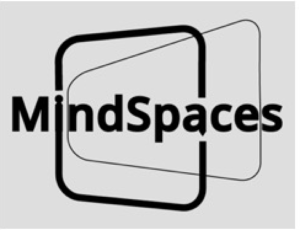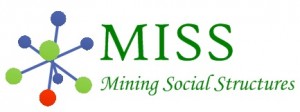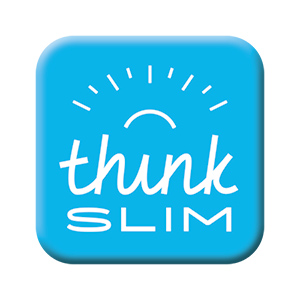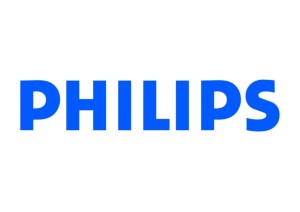Current projects
|
|
SC1-DTH-11-2019 – Large Scale pilots of personalised & outcome based integrated care: PROCareLife – PeRsOnalized Integrated CARE Solution for Elderly facing several short or long term conditions and enabling a better quality of LIFE (2020-2022)https://cordis.europa.eu/project/id/875221?WT.mc_id=RSS-Feed&WT.rss_f=project&WT.rss_a=225859&WT.rss_ev=a The main contribution of PROCareLife consists in proposing an integrated scalable and interactive care ecosystem, which can be easily adapted to the reality of several chronic diseases, care institutions and end-user requirements, benefiting all the involved actors, from patients, to caregivers and health professionals. Its main contributions consist of: (a) building an integrated scalable and interactive care ecosystem for neurodegenerative diseases and adaptable to other chronic conditions; (b) finding the best actions/measures from a medical and social point of view that can facilitate an improved quality of life, awareness and care management for senior users suffering of neurodegenerative and/or other chronic diseases; (c) provide a personalized recommendation and interaction model, which can support the user through gamification techniques to adopt healthy habits, maintain a good daily routine and follow the prescribed actions by the professionals for maintaining and improving their health condition; (d) enable multi-disciplinary communication between all involved stakeholders, better time management for social and health professionals and contribute to achieving a cost-efficient, flexible and high adaptable solution for senior users suffering of short or long term conditions. Consortium:
|
 |
Horizon2020 STARTS initiative (Science, Technology & the Arts) 2019-2021: MindSpaces.Art-driven Adaptive Indoors and Outdoors Design).Artists and technology experts will closely collaborate under a novel working model scheme to propose innovative designs to address societal challenges faced by cities as they expand, and the evolving needs in functionality and emotional resonance of modern day workplace and housing interiors1. Art has the capacity to transcend established theoretical and conceptual frames and act in cross-disciplinary ways, as it provides space for what is called as“lateral” thinking, that is to address issues with an ‘out of the box’ approach. Collaborations between artists and scientists or technologists fall into the realm of techno science art, which has a long history of experimentation and impact on research and design. Artists will help create AR/VR installations that will highlight the cultural significance of cities and sustainability issues they are facing, as well as paradigm-shifting designs of indoors work and living environments. Their aim will be to ensure improved functionality, usability, but also emotional and cognitive wellbeing of end users. State-of-the-Art (SoA) multisensing technology, such as wearable EEG, physiological sensing, visual analysis, social media inputs, will be integrated for the immediate assessment of innate user responses to the MindSpaces installations, and artistic adaptation of the designs accordingly. Consortium:
|
  |
Horizon2020-ICT-20-2015: MaTHiSiS (Managing Affective-learning THrough Intelligent atoms and Smart InteractionS). Personalized, affect-enhanced smart learning, using robots, mobile devices and interactive boards (2016-2018).
The MaTHiSiS learning vision is to provide a product-system for vocational training and mainstream education for both individuals with an intellectual disability and non-diagnosed ones. This product-system consists of an integrated anthropocentric platform, along with a set of learning components (educational material, digital educational artefacts etc.), which will respond to the needs of a future educational framework and provide capabilities for: i) adaptive learning, ii) automatic feedback, iii) automatic assessment of learner’s progress and behavioural state, iv) game-based learning. MaTHiSiS will make use of cutting-edge technologies in learning settings that range from specialized robots and mobile devices to interactive whiteboards, and will advance them to a greater degree of integration into the market. MaTHiSiS will create a novel and continuously adaptable “robot/machine/computer”-human interaction educational scheme which adapts to different learning requirements and makes use of the shared knowledge among its different components to advance learning beyond linear social skill acquisition towards more workplace-oriented activities. Consortium:
|
  |
Horizon2020-PHC-25-2015: ICT4Life (ICT services for Life Improvement For the Elderly). Ambient-Assisted Living for the elderly with cognitive impairments, personalized interfaces and teleservices (2016-2018).
ICT4Life will develop a solution for individuals with early stage cognitive impairment living alone that will permit doctors and caregivers to extract information about patients (for taking the best medical or social actions), while contributing in a user friendly way to extend their independence. People with dementia, in general and, in particular, with Alzheimer at an early stage, and with Parkinson, constitute the main group of users ICT4Life will focus its analysis on. The technologies that will constitute the main pillars of ICT4Life are the following: Education delivery methods for care professionals; tools for the automatic creation of reusable resources, i.e. formative training content; ICT decision support instruments, incorporating machine intelligence, allowing care professionals to have access to treatment/therapy recommendations according to patients’ profile; advanced visual analytics to monitor personal health status; indoors activity recognition through advanced sensing to detect deviations from persons’ daily conduct; game-based learning and adaptation tools to boost patient empowerment and self-care abilities; integration of unobtrusive biomedical sensors for continuous monitoring of the patient health status and compilation data to be processed and generate new medical knowledge; design and development of personalised interfaces relying on smart/Connected TV and mobile technologies; standard codification mechanisms to increase levels of integration of clinical and social data from multiple service providers and user-generated data. Electronic Health/Care Record (EHR); data mining to accomplish data analytics so that new knowledge about co-morbidities, disease evolution and socio demographic parameters will be generated Consortium:
|
 |
2015 – 2018: “Advanced Brain-Robot Interfaces”, funded with UM’s Luik3 program. This is a joint project with Prof. Rainer Goebel and Dr. Bettina Sorger from the Department of Neuroscience of Maastricht University.
Project website: project.dke.maastrichtuniversity.nl/brain-robot |

|
2012 – 2016: RAI is leading the MiSS project which is a part of CATCH program. MiSS aims at development of practical identity resolution techniques for Dutch historical archives, and extraction of social networks from large entity networks. |
  |
2012 – 2016: RAI is participating in the Think Slim project which is a part of Healthy Life Style (HLS) partnership programme Think Slim aims to develop a tailored E‐coach‐intervention for overweight people that is based on cognitive behavioral therapy (CBT). This is a joint project with the Faculty of Psychology and Neuroscience (FPN) of Maastricht University. |
Previous projects
|

